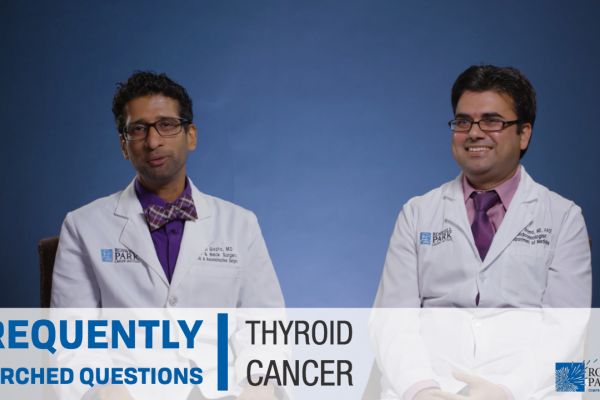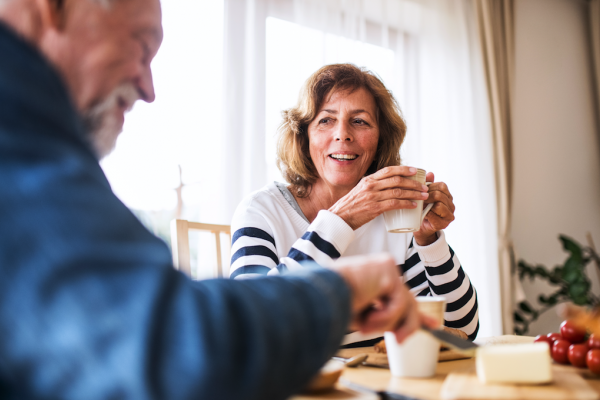Our clinical dietitians answer the most-searched questions relating to nutrition for cancer patients
You ask the Internet a lot of questions, and Roswell Park has some answers. Clinical dietitians Linda Leising, BS, RD, CDN, and Rachel Simson, MS, RD, CDN, sat down to answer some of the Internet's most-searched questions related to nutrition for cancer patients. Listen as they tackle the following questions:
Can cancer patients have sugar?
Sugar is not the evil it's made out to be. The problem is, when you eat a lot of foods with added sugar, it increases the calorie content and it's not very nutritious for you. If you keep eating a lot of foods with added sugar, those increased calories will eventually result in a weight gain. Unplanned weight gain — or weight that results in overweight or obesity — is a risk factor for 12 cancers, according to the American Institute for Cancer Research. So people should avoid sugar — not because it causes cancer, but because it can lead to weight gain, which is unhealthy.
Can cancer patients eat seafood?
Not only can cancer patients eat seafood, dietitians recommend seafood to patients, because it's a great source of lean protein. For immunocompromised patients, it's recommended that you cook your seafood to at least 145 degrees and avoid any raw seafood or fish.
Can cancer patients drink alcohol during treatment?
It's recommended that people in general avoid alcohol, because it is a known risk factor for many cancers. But we realize that many people may still want to drink in moderation during treatment.
The recommendations are the same as they are for non-patients: For men, no more than two drinks per day, and for women, a maximum of one drink. Twelve ounces of beer, five ounces of wine or 1.5 ounces of 80-proof liquor would be equal to one drink.
Can cancer patients have eggs?
Eggs are an excellent protein source and are great because they're so versatile. They can easily fit in almost anyone's budget, and you can eat them hot or cold if you hard-boil them. If you're going through treatment and things taste weird, or you're having trouble with certain temperatures of foods, you can always do something with eggs to make them a little more palatable.
What foods should patients eat after treatment is finished?
It's important to understand that taste — for a lot of cancer patients — may not come back for weeks to months after treatment, so keep that in mind. After treatment, the American Institute of Cancer Research does recommend a plant-based diet of fruits, vegetables, whole grains, legumes, beans and lean proteins. It’s recommended that you eat no more than 18 ounces of red meat (beef, pork, lamb) per week, and processed meats should be limited.
What are the best foods for chemo patients?
Every cancer patient is going to tolerate foods very differently. Each patient is going through different types of treatment, whether it be surgery, radiation, chemotherapy. They have different side effects and different symptoms; so really, we recommend any foods that they can tolerate — what tastes good to them, what they can tolerate without any nausea or vomiting.
What fruits should patients eat during treatment?
Whichever ones they like! If you are immunocompromised, you should avoid any fresh or frozen berries, but otherwise, any fresh fruit. They all offer different vitamins, minerals, phytochemicals, and we want a variety of different colors, so really, whatever tastes good to you.


